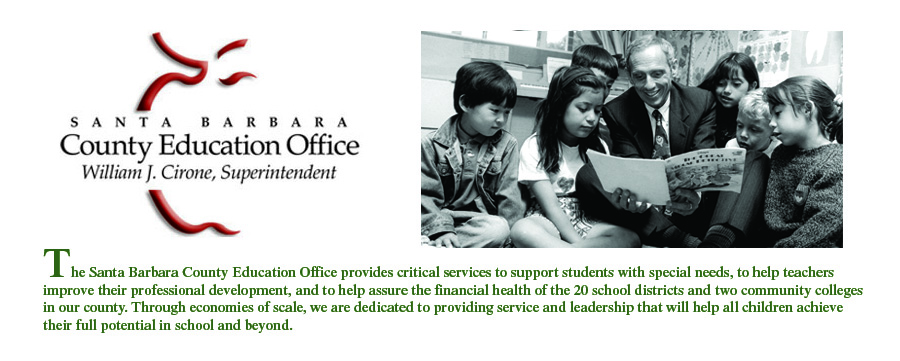By Bill Cirone, Santa Barbara County Superintendent of Schools
The principles of science form an umbrella over almost everything we do. Science is essential to understanding and making sense of the world around us. Many educators feel that science is also one of the most innately interesting subject areas for children.
Having a strong scientific background enables students to make informed decisions about issues that affect their lives, and helps prepare them for a future that, in many ways, is unpredictable.
Recognizing the critical role science plays in a student’s academic and intellectual development, California recently adopted the Next Generation Science Standards. This adoption marks the first science standards update since 1998. While the old standards heavily emphasized knowing scientific facts and theories, the new standards address all three dimensions of science: content, concepts, and practice.
As the National Research Council recently pointed out, learning science depends not only on the accumulation of facts and concepts, but also on students’ motivation and interest to learn more. That intellectual growth is valuable not only for those students who go on to become scientists or engineers, but also for the great majority of students who do not follow these professional paths.
The new standards are great developments in science education. They capture the wonder, curiosity, and excitement that most students bring naturally to science. By engaging students in these concepts and practices, teachers help them develop the skills to think like scientists and engineers.
With an increased emphasis on students thinking like scientists and engineers, science education will involve more students conducting investigations, designing models and experiments, solving problems, and supporting claims with evidence and reasoning.
Piquing a child’s curiosity in science and engineering doesn’t have to be limited to classroom activities, however. To help your child develop an interest in science, parents can try these tips:
- Discuss family eating habits in terms of how the body uses various kinds of food. The body can be viewed as a system, and food as the power source. Check out ingredients labels on cereal boxes, for example, and learn with your child the various nutritional benefits of those ingredients.
- After you have removed all electrical cords, encourage children to tinker with old clocks, radios, or computers to see what makes them “tick.” For some young students, trying to understand how certain every day items function can prompt a lifetime of intellectual curiosity.
- Children often discover things in nature that they find fascinating. They should be encouraged to learn about their environment, and consider how these different elements of nature are interconnected.
- Demonstrate scientific thinking by challenging general statements with the question, “How do you know that’s true?” “What proof do you have that can verify it?” This helps children understand the difference between opinion and fact.
- Encourage any interest in collecting rocks, leaves, shells, or other natural objects. Provide a place to display and observe the collections.
Explore the many opportunities for science-related outings in our own county, so you can make learning a fun family affair. Science learning in school leads to citizens with the confidence, ability, and inclination to continue learning about issues — scientific and otherwise — that affect their lives and communities.
“The important thing is to not stop questioning,” Albert Einstein wrote in Life Magazine over 60 years ago. “Curiosity has its own reason for existence.” Einstein’s encouragement of exploration and lifelong learning is as appropriate today as ever, and is essential in helping develop the scientists and engineers of tomorrow.
